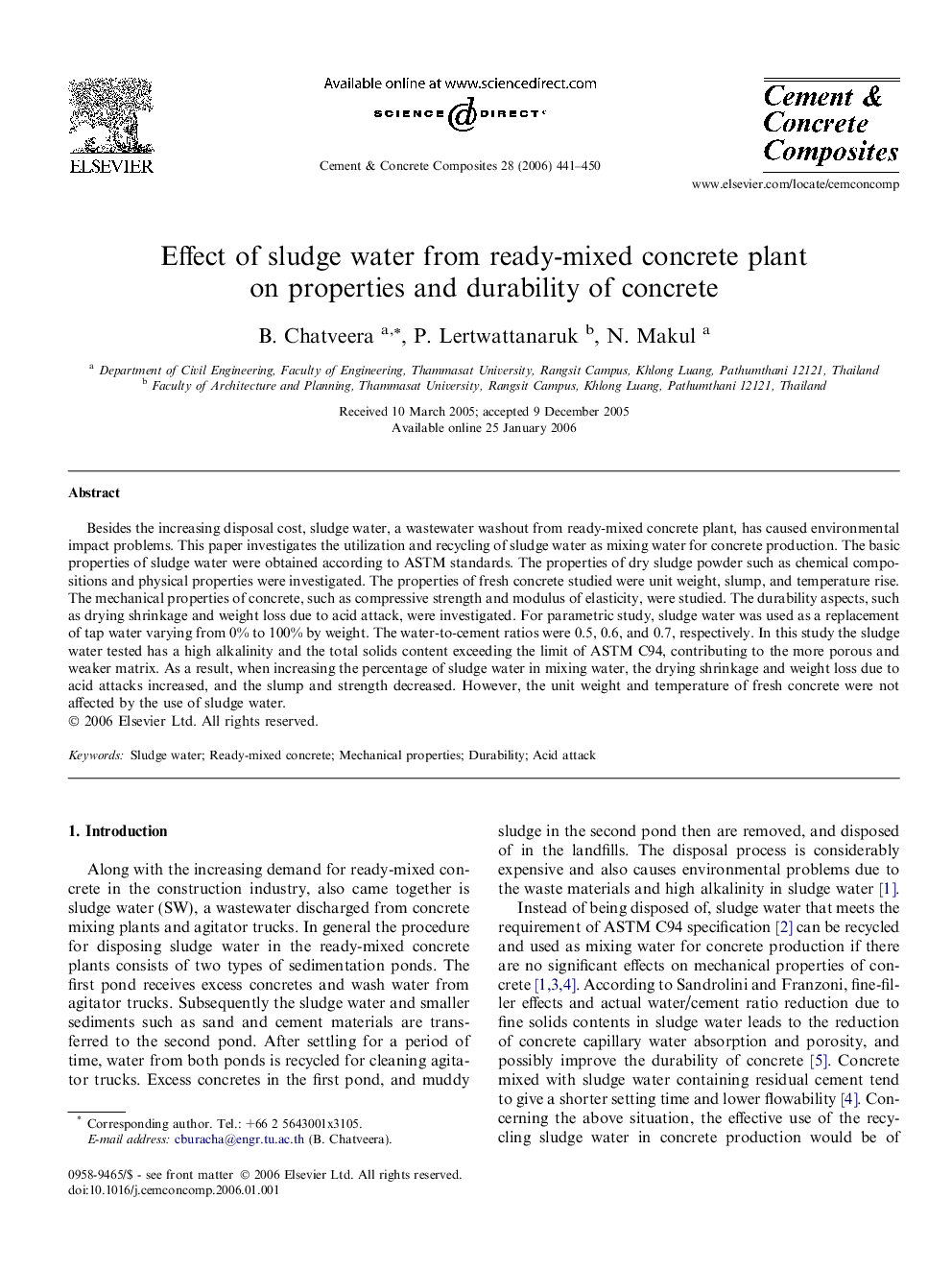| Article ID | Journal | Published Year | Pages | File Type |
|---|---|---|---|---|
| 1455886 | Cement and Concrete Composites | 2006 | 10 Pages |
Besides the increasing disposal cost, sludge water, a wastewater washout from ready-mixed concrete plant, has caused environmental impact problems. This paper investigates the utilization and recycling of sludge water as mixing water for concrete production. The basic properties of sludge water were obtained according to ASTM standards. The properties of dry sludge powder such as chemical compositions and physical properties were investigated. The properties of fresh concrete studied were unit weight, slump, and temperature rise. The mechanical properties of concrete, such as compressive strength and modulus of elasticity, were studied. The durability aspects, such as drying shrinkage and weight loss due to acid attack, were investigated. For parametric study, sludge water was used as a replacement of tap water varying from 0% to 100% by weight. The water-to-cement ratios were 0.5, 0.6, and 0.7, respectively. In this study the sludge water tested has a high alkalinity and the total solids content exceeding the limit of ASTM C94, contributing to the more porous and weaker matrix. As a result, when increasing the percentage of sludge water in mixing water, the drying shrinkage and weight loss due to acid attacks increased, and the slump and strength decreased. However, the unit weight and temperature of fresh concrete were not affected by the use of sludge water.
